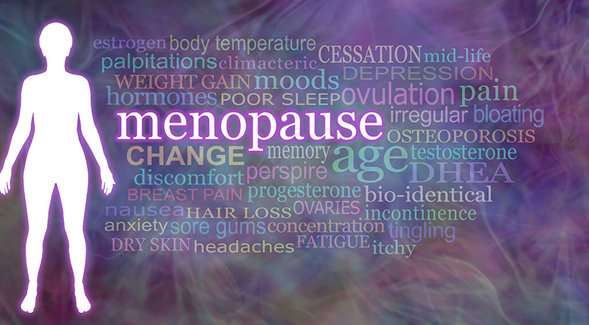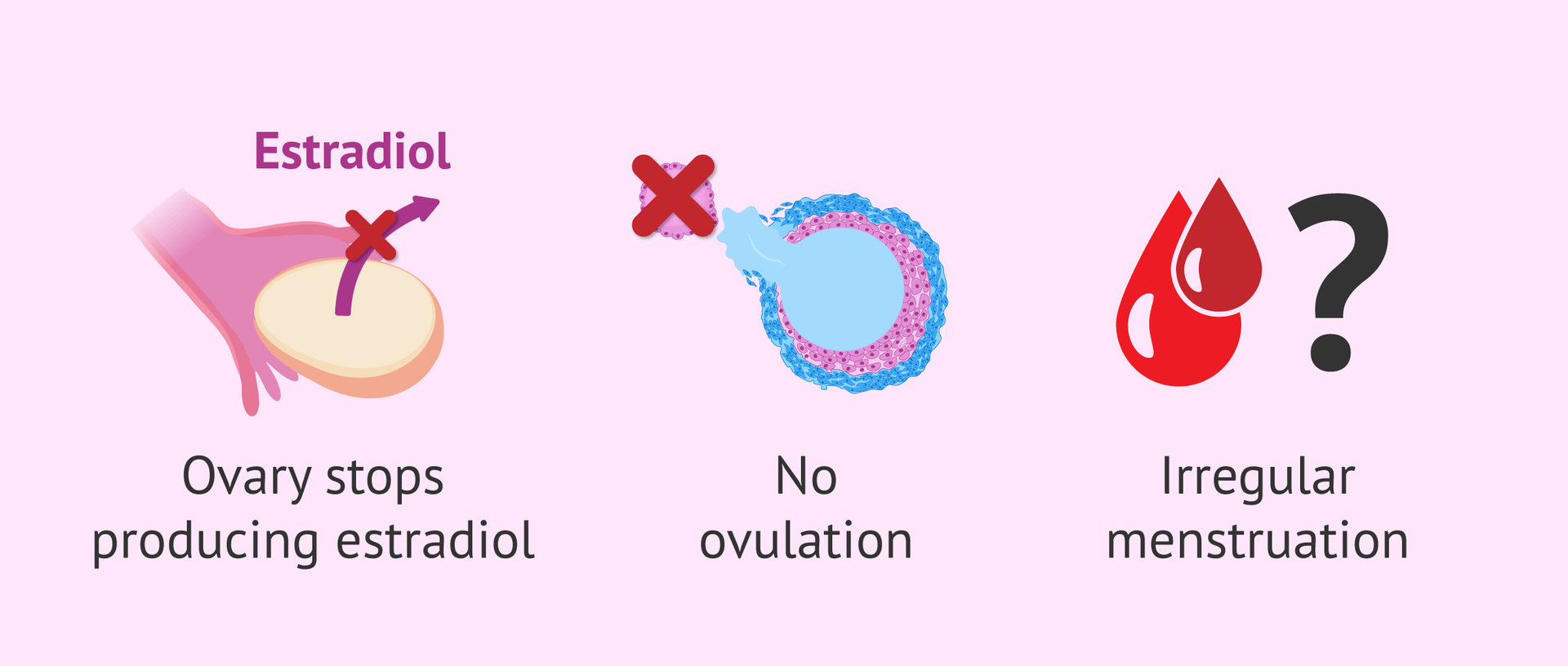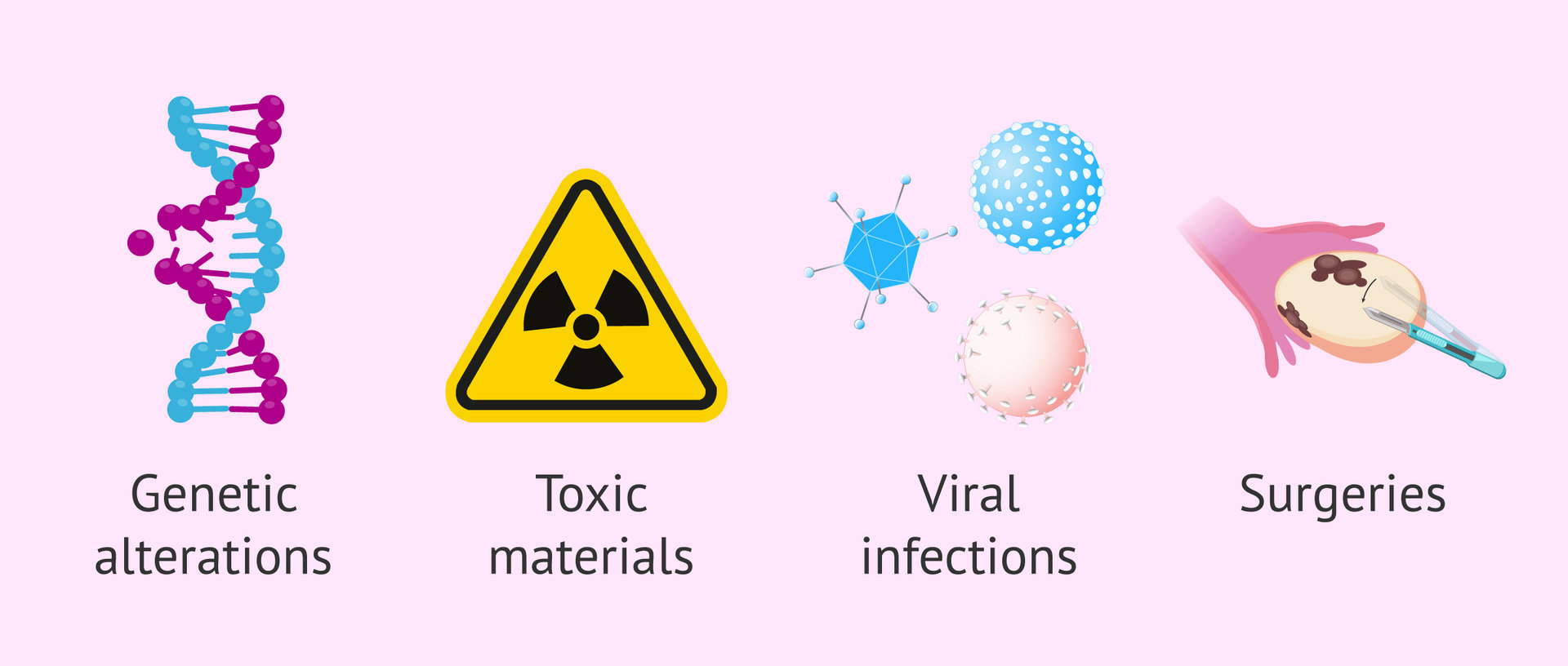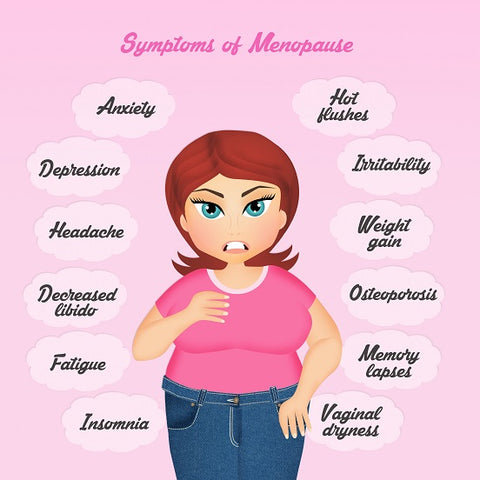Every woman goes through menopause, which is a natural process. As you age, the reproductive hormone levels decrease, and the ovaries stop releasing eggs, ceasing your periods and fertility. Natural menopause often occurs between the ages of 50 and 51. This age can vary because every woman’s body acts differently. If a woman has gone more than a year without having her period, it is termed menopause.

Irrespective of your age, the menopausal transition can be difficult. However, 1% of women may experience menopause as early as their thirties, substantially earlier than the usual menopause onset age of fifty.
Going through premature menopause is alarming and confusing for women who experience it, as they are not aware of its symptoms.
They might believe there is another cause for these symptoms, as menopause isn’t even on their radar.
However, suppose you have any symptoms mentioned below, along with irregular periods,in that case, it is a good idea to speak with your doctor, especially if you still intend to become pregnant.
You can visit Budget Fertility Center for effective and advanced premature menopause treatment in Mumbai. They offer personalized, result-oriented treatments with utmost sensitivity and care.
Dr. Hrishikesh Pai, a world-acclaimed gynecologist in Mumbai and the co-founder of Budget Fertility Center, shares his views on the causes and premature menopause treatments.
Let’s begin with what premature menopause is

When a woman experiences menopause before age 40, it is referred to as premature menopause. It may occur due to several reasons, and it might be sudden or induced.
Estrogen deficiency is a factor that can cause premature menopause, and it can increase the risk of long-term health hazards like psychosexual dysfunction, cardiovascular or neurologic diseases, mood disorders, etc.
Therefore, it is advisable for women going through premature menopause to have regular check-ups.
What are the causes of premature menopause?

The exact cause of premature menopause is not known. Nevertheless, some of the factors that can increase the risk of premature menopause are:
- Family history: If there is a history of early or premature menopause in your family, then you may be six times more likely to experience it.
- Viral infection: Malaria, mumps, tuberculosis(TB),or varicella could be a reason for premature menopause.
- Autoimmune disease: Conditions such as lupus, thyroiditis, and rheumatoid arthritis may cause premature menopause.
- Genetic abnormalities: The abnormality in chromosomes can affect how the ovaries form and function, causing premature menopause.
- Chemotherapy and radiation: Undergoing these cancer treatments can damage the ovaries, stopping the menstrual cycle temporarily or permanently.
- Surgery to remove the uterus or ovaries: Removal of your ovaries or uterus due to medical conditions, such as cancer, cysts, or endometriosis, will stop your periods and cause menopause.
Apart from removing both ovaries, premature and early menopause are rare.Therefore Dr. Hrishikesh Pai, an experienced gynecologist in Mumbai, recommends consulting your doctor if you suspect you are entering menopause before it is due.
What are the symptoms of premature menopause?

The symptoms can vary from woman to woman, and they include:
- Hot flashes
- Weight gain
- Heart palpitations
- Vaginal dryness
- Night sweats
- Disrupted sleep
- Light headedness
- Mood swings
- Brain fog
- Fatigue
- Decreased sex drive
- Hair loss and thinning
- Sore joints
How is premature menopause diagnosed?
Premature menopause is challenging to diagnose. As only 1% of women have this condition, it becomes necessary for medical professionals to pay close attention to a woman’s symptoms, obtain a thorough medical history, and run blood tests that measure the levels of estrogen and follicle-stimulating hormone (FSH).
To get a conclusive diagnosis, they must rule out other medical conditions, such as thyroid dysfunction, autoimmune illnesses, and infections.
Further, these tests must be repeated regularly,and you should followup with your doctor for comprehensive menopause treatment and management.
What are the options for premature menopause treatment?
Treatment options for premature menopause are based on its underlying causes and potential health implications. The doctor may prescribe hormone replacement therapy (HRT) to treat the symptoms and conditions related to premature menopause. However, consult a reputed menopause specialist as it has potential health risks.
Apart from this, you can relieve the symptoms of premature menopause by following a healthy lifestyle, exercising regularly, eating nutritious, balanced meals, avoiding junk food, and refraining from smoking and drinking alcohol.
If you want to conceive, then IVF is an option. You can use donor or your own eggs, which you may have frozen before menopause.Other options include surrogacy and adoption.
Schedule an appointment with our expert gynecologists at Budget Fertility Center if you notice changes in your menstrual cycle or have the symptoms mentioned above. They are experts in premature menopause treatment in Mumbai and have helped many women conceive and have children.







